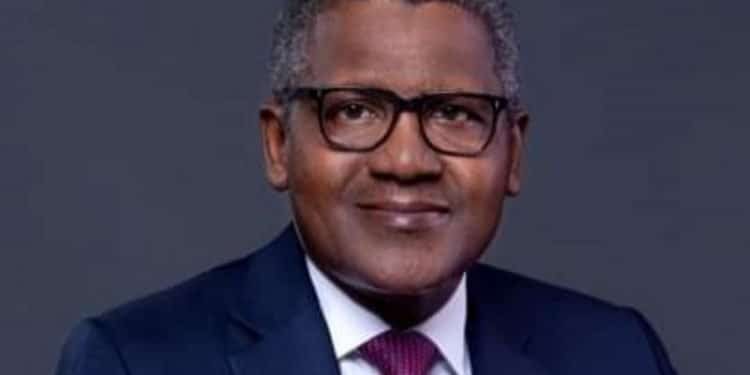According to assessments by Forbes and Bloomberg, Aliko Dangote has become the wealthiest businessman in Africa and the richest Black man in the world over the past ten years. His narrative has inspired several Africans, African Americans, and other people of colour worldwide.
Dangote’s net worth is $12.7 billion, according to Forbes, and $19 billion, according to Bloomberg. He mostly derives his income from Dangote Cement, one of Africa’s most popular and well-known brands. His cement firm operates in 10 nations around Africa and has a production capacity of 48.6 million metric tons annually.
In addition to operating a cement factory, Dangote also operates an oil refinery, a sugar factory, and a fertiliser and pesticide manufacturing facility. His refinery, which is currently being built, is anticipated to be among the biggest in the world and will help lower Nigeria’s reliance on imported processed crude.
Additionally, he is involved in the production of automobiles through his company, Dangote Peugeot Automobiles Nigeria Limited (DPAN). Beginning with the Land Trek 3008, 5008, and the new 508, the vehicles’ assembly began.
How did Dangote begin his path to being the richest Black person in the world and a successful businessman? Almost 65 years ago, Dangote was born into a prosperous northern Nigerian trading family. Alhassan Dantata, Dangote’s great-grandfather, traded primarily groundnuts and kola nuts. Yet Dantata was also one of the richest men in the British colonies in West Africa.
At a World Economic Forum event, he revealed to Time Magazine that his great-grandfather traded kola nuts and was the richest man in West Africa at the time of his passing. “My father was a politician and businessman. Actually, my grandfather raised me. In my culture, it’s customary for grandparents to raise the first grandchild. I experienced a lot of love, which greatly boosted my confidence.
Despite coming from a wealthy family, Dangote forged his own way in business. He began looking for his own money when he was still in primary school, which was pretty early. He’ll sell sweets to raise funds for his education. He also put in a lot of effort working for his uncle Sani Dangote, which helped him establish the groundwork for his business success.
I recall that when I was in elementary school, I used to buy cartons of candies and sell them to make money. Even then, I was quite interested in business,” he admitted.
After earning his business studies and administration degree from Al-Azhar University in Egypt, one of the largest Islamic universities, he asked his uncle for a loan to start a firm.
He eventually received a $3,000 loan from his uncle to import and trade agricultural goods in Nigeria. Sugar, rice, pasta, salt, cotton, millet, cocoa, textiles, and vegetable oil from Brazil and Thailand were among the commodities he dealt with.
His company took off right away, and three months later, he paid back the debt from his uncle. He entered the cement business in 1973 by purchasing trucks and reselling them to others for profit.
After dumbing down cement, he started selling rice, sugar, and other commodities. Finally, he opened a factory and returned to the cement business. In the first year, he went from having no market share in Nigeria to dominating the market by roughly 45%.
According to him, the nation is currently generating 42 million metric tons, of which 29 million belong to us. In addition to Nigeria, we have also exported our products to 17 other African nations. We’ll have 80 million metric tons of capacity by 2019.
The success of his cement factory encouraged him to begin producing some of the goods he had imported or purchased from third parties. In 1997, he constructed a facility and began producing flour, pasta, sugar, and salt.
All of his businesses are currently run by the Dangote Group, of which he is the chairman. The company has about 30,000 employees in Nigeria and other countries in Africa. The following companies are part of the Dangote group: Dangote Flour Mills Plc, Dangote Cement Plc, and Dangote Sugar Refinery Plc.
Dangote Pasta Factory Limited and Dangote Agro Sacks Ltd. are a few others. Activities at Dangote Salt Plc’s ports Steel Production in Haulage Telecommunications Real Estate Dangote Foods Limited Petrochemicals, fertilisers, and Oil Refineries
Given the necessary enabling environment, which is frequently lacking, African youth have the potential to succeed in the field of entrepreneurship and in any endeavour, as demonstrated by Dangote’s rise to become one of the most influential and prosperous businesspeople in Africa and the world at large.











This man is an inspiration to other people.